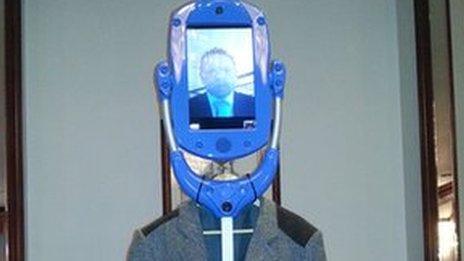Big Hero 6-style robots may not be far away, says UHI
- Published
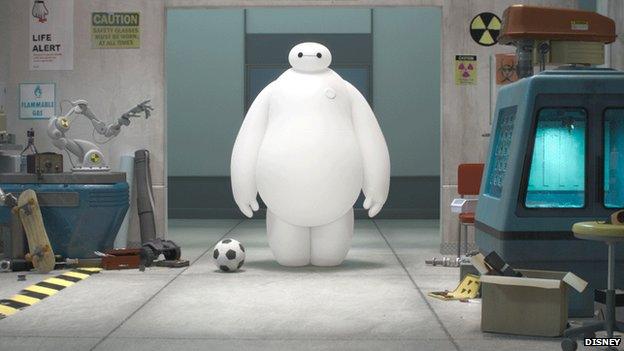
Baymax is a robot with a soft synthetic skin who can scan people for medical conditions
Personal healthcare robots such as Baymax in Disney animation Big Hero 6 may not be far from becoming reality, a Scottish university has suggested.
In the film's futuristic world, Baymax is a robot with a soft synthetic skin who can detect medical conditions.
The University of the Highlands and Islands said a lecture next month will suggest a new era of smart healthcare devices could be imminent.
Advanced technology could also halt a "brain drain" from rural areas.
The lecture will be delivered in Elgin by Prof Maged N Kamel Boulos, an expert in digital health at UHI.
He will consider how the "internet of things" - a concept that promotes linking medical devices and even domestic appliances such as washing machines to the internet - could improve healthcare in remote and rural areas of Scotland.
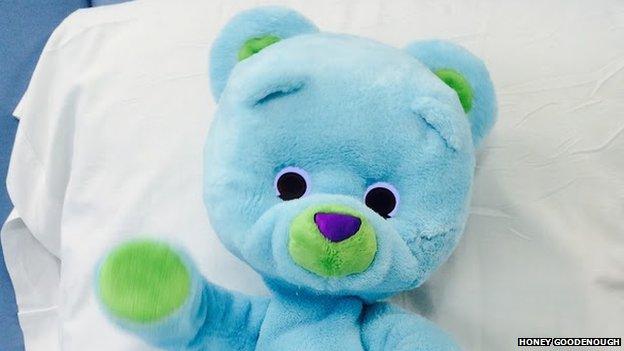
US-made robot teddy Huggable has a link to the Highlands and Islands
Prof Kamel Boulos said: "In this age of 'internet-of-things', there is no reason why the populations of smaller and rural settlements should be left lagging.
"Smart technologies can help to reverse the 'brain drain' from the countryside and smaller towns by making them more connected and attractive to young professionals, with better services, akin to those found in larger metropolises.
"They can also help people better help each other and can play a major role in reducing the social isolation of older people."
Prof Kamel Boulos will deliver his lecture at the Alexander Graham Bell Centre, a new £6.5m facility for digital health and life science based at Moray College UHI, on 2 April.
It will also be made available by video conference.
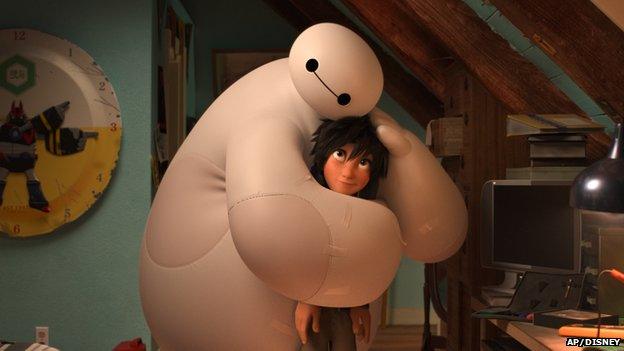
Disney's Baymax was based on real-life technology being developed by US and Japanese engineers
The Highlands and Islands has previous form for exploring the use of smart technologies and robots in healthcare.
Early versions of a robot teddy bear now being put through its paces in a children's hospital in the US were tested in the Highlands.
An updated version of the bear has been fitted with pressure sensors on two of its paws and several touch sensors throughout its body parts.
The screen of the smart phone device in the robot's head shows animated eyes and the robot can use the phone's internal speaker, microphone and camera for sensing changes in a child's wellbeing.
The early prototype of Huggable was brought to Scotland by MIT Media Lab in a project supported by Highlands and Islands Enterprise (HIE).
The UHI Millennium Institute - now the University of the Highlands and Islands - was also involved.
NHS Western Isles announced in 2013 that it was exploring the use of robots in the homes of people with dementia.
Baymax is based on real-life "soft robotics" that are being developed at the Carnegie Mellon University in the US.
- Published29 October 2014
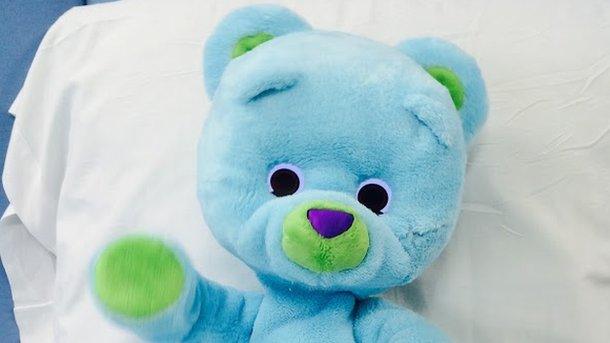
- Published5 July 2013
